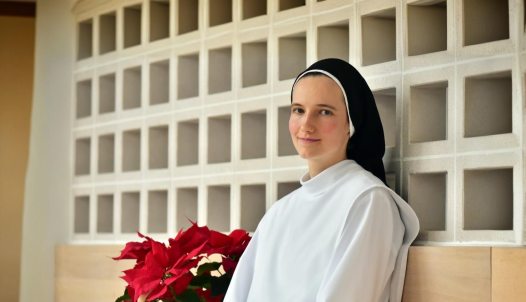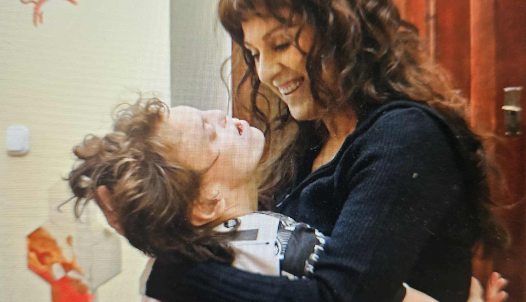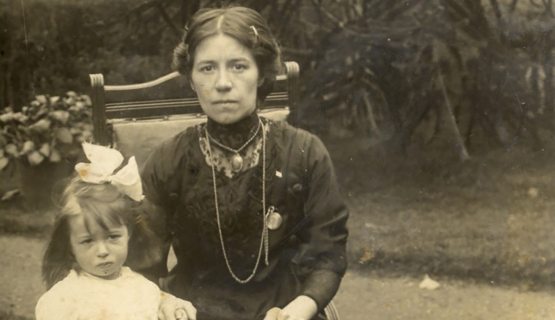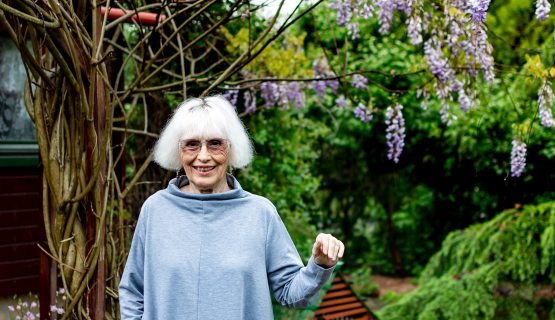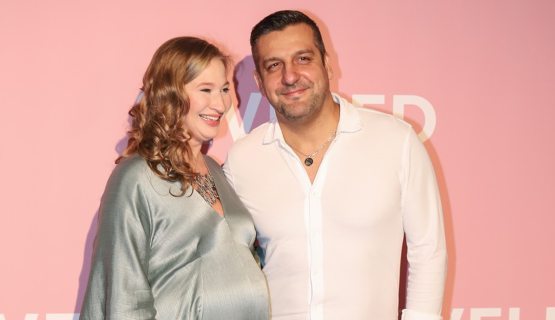Lady or queen? – The story of a remarkable kindergarten teacher
My daughter came up to me the other day and asked: “Mummy, what do you think I should be, a lady or a queen?” The question so surprised me that I couldn’t even answer, but since then I have been wracking my brains over this conundrum. Of course, both would be good. I also pondered how many women I have met in my life who I consider display both attitudes. One of them is Harcsa Tiborné, that is Aunt Kati Harcsa, 85 years old this year, teacher and carer of countless kindergarten children, founder of the Kindergarten Museum in Martonvásár. And phenomenon with regal aura. Her professional work has been recognized with the Hungarian Heritage Prize and bronze Honourable Order of Labour, as well as the Silver Order of Merit of the Republic of Hungary. I talked with Aunt Kati.
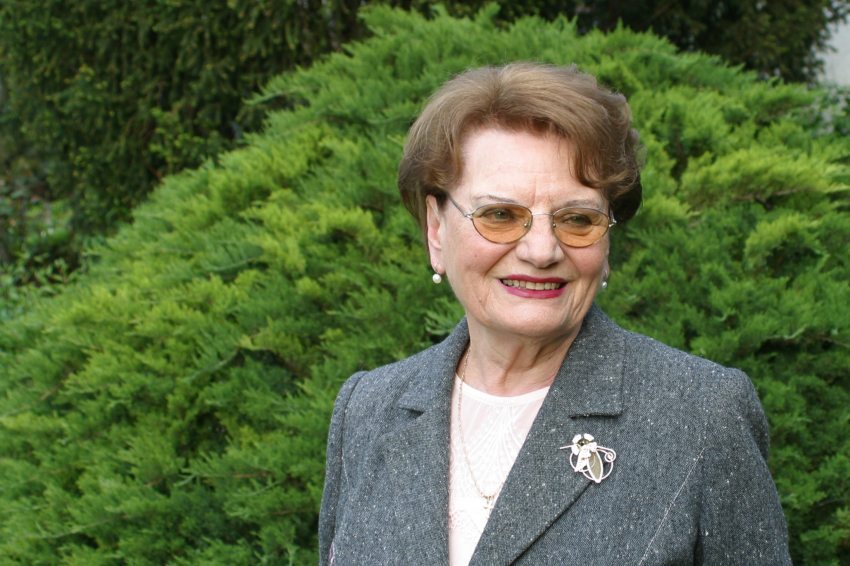
Fate redirected you from the Nyíregyháza pathology department towards kindergartens. How did this come about?
“I had three siblings and we grew up in Hajdúszoboszló. I left school in 1953, at the worst moment of the Rákosi era, and prepared to be a doctor. However, I wasn’t taken on to the medical university because my father had been found guilty in a show trial: the charge was that he had agitated at an assembly, although he was not even there. I moved to Nyíregyháza with my husband and there I was able to find work in the pathology laboratory of a hospital. My boss, professor Ferenc Gerlei, was renowned internationally. He had written the following classical Latin quote on the wall in block letters: ‘Hic locus est ubi mors gaudet succurrere vitae’, that is, ‘This is the place where death has pleasure in hastening to the aid of life’. The fact is, pathology helps cure the living. I was delighted to read in Képmás that the very same thought is reflected in the approach of neurosurgeon András Csókay: he first tried out brain surgery techniques on corpses.
“Although I loved my work, I had to leave because of my allergy to benzol and xylol. There are no coincidences, only God’s logic at work. I had to switch careers and because I really love children, and my mother worked in a home for kindergarten-aged children, I thought that I would become a kindergarten teacher.”
How did you feel when you moved from the peace and quiet of a laboratory to the buzzing life of a kindergarten?
“I completed the correspondence course of the nursery school training college in Szarvas and six months before the state exam I was sent for practice. At that time there were large children’s groups with 40 or so children in kindergartens. When somebody has no experience and they cannot keep discipline, then they don’t know the small tricks that can get children to stop doing something naughty voluntarily.
“I always kept a small doll in my pocket that proved to be an excellent way of diverting attention.
“But I came across more difficult cases as well: psychological problems when, for example, the child would self-punish by banging his or her head against the wall. When this happened I had to dig right down to the psychological fundamentals of my profession so that I was able to perform according to my own expectations. In 1963 I graduated as a kindergarten teacher. Five years later I became qualified to teach kindergarten methodology and students came to me for practical classes. I have a folder in my computer with the title ‘I was always a happy kindergarten teacher’. This is where I keep all my photos connected with schools.”
It would seem that you consider your work a success.
“I soon became a director and in 1972 I was awarded the Honourable Order of Labour in Parliament. From 1968 to 1971 I conducted trials in Szabolcs-Szatmár-Bereg county prior to the introduction of the new kindergarten training programme. You have to imagine that earlier, kindergarten teaching was based on demonstrations: the children were all seated in a semi-circle and we demonstrated to them standing, from a central point. You can imagine how hard it was to get three-year-olds to sit down in a semi-circle and pay attention to the illustrative picture or involve them in questions and answers… It took absolutely no account of the children’s capabilities. In the later, new educational programme we only initiated activities in small groups and if the children were interested, then they joined in. We set up a book corner for telling stories and initiated singing and music, only physical education was obligatory.”
To what do you attribute the fact that you were able to deal with kindergarten-age children happily and not end up burnt-out mentally?
“It depended, and still depends, on how a person ‘approaches children’ so that in the meantime he/she lifts them up, and educates them joyfully, with humour and not primarily discipline.
“Discipline is the result of education, not the means of education.
“Of course, there are some children with whom it is very difficult to get along, but it is also our duty to see that everyone feels happy in school. I had an overactive pupil who was brought up with beatings by his father, so this child also beat the other children. Unfortunately, I made the error of reporting this to the parents, so that the child got it even worse at home. Then I said to the child: ‘Let’s make a pact. I’ll never again tell your parents that you were naughty here, but I ask you to stop fighting.’ I always tried to tie up energy and attention with something else. On the very day that I retired, one of my colleagues went to the doctor because she had to extend her driving licence. She asked if she could be seen first because she had to go back for the farewell party of her head teacher. ‘Who is the head kindergarten teacher?’ the doctor enquired. ‘Harcsa Tiborné’ was the reply. ‘Aunt Kati? She was my kindergarten teacher!’ The doctor asked where I lived. I was just about to set off for the kindergarten when the doorbell rang. A fine looking, tall man was at the door with a single Gerbera stem. ‘You don’t remember me, do you?’ he asked, and smiled. And then I recognized him as my one-time naughty kindergarten pupil. Later on, he came again and we had a great chat.”
You made the kids your allies...
“One girl in the kindergarten always acted like a little saint. She only ever did good things, she played nicely, sang, she was always around me. However, her mother complained that she was impossible at home. Then it came to us that in the kindergarten she had a great wish to conform and that is why she held herself back, but once she got home all hell broke loose.
“In other words, it is not always best when somebody behaves like a little angel in kindergarten, they can be a bit naughty, too.”
Did you ever come into conflict with a parent?
“One father put life’s simplest and most difficult question to me at a parent-teacher meeting when we were talking about how aggressive the children were: ‘Please tell me, then, are we bringing up sheep or wolves?’ I could hardly answer and stuttered something to the effect that: ‘We have to raise people who are able to empathize with others, while not allowing them to do harm.’ But the truth is that even today I do not know the appropriate answer, and in fact the question remains relevant. Where is the middle way? There isn’t, or it is tricky to locate.”
We all have both the sheep and the wolf inside us, whether we like it or not, we have to make something of it.
“Many psychologists consider that love is an inherent characteristic we are born with, but it is not true.
“The capacity for aggression, for example, is with us when we are born because it is a part of the instinct for life. In the best case, love is something we feel, experience, it feels good and we reciprocate. We learn to love, just as emotional intelligence and behavioural culture are characteristics we are not born with. One should never say to a child ‘you are bad’ because he/she will believe this and identify with it – one can only say that what a child did was bad. That is why I send a child into the corner to think through why they cannot do this again. One should always give a reason for what the consequence will be of doing something.”
It would appear that your knowledge of child rearing psychology was ahead of its time.
“We were taught psychology on the kindergarten training course, whereas elsewhere, according to scientific socialist theory, they taught that the psyche does not exist. What a duality! They got rid of all religious education. One of the reasons I found it so difficult to collect relics of Hungarian kindergarten teaching later on was that during the Rákosi era it was decreed that all notes and vestiges of the past had to be burnt in the courtyards of kindergartens; or in the bigger towns and cities, for example, in Nyíregyháza, old visual aids, fairy tale and poetry books were taken by truck to the pulping plants. I only found documents from that time in the attics of kindergartens or at the bottom of cupboards of elderly kindergarten teachers because they wanted to preserve memories of their youth.
“I set up a local history-type kindergarten collection in Nyíregyháza, it was registered as a museum in 1992, furthermore it was given national scope because this was the only way to guarantee the widespread collection of material. In 1995 the Kindergarten Museum was relocated to Martonvásár, the favourite town of founder of Hungarian kindergartens, Therese Brunsvik.”
Why did you start collecting documents and artifacts on the history of kindergartens? Where did the idea come from?
“At that time I was head of the kindergarten on Körte Street in Nyíregyháza. The building was a century old, the ancient roof tiles were cracked and the roof leaked. I went up into the attic to look around with the roofing contractor and hidden under the rafters I came across a brown sack. In it were ten old kindergarten illustrative images and children’s poems of a Christian and patriotic nature written on flimsy paper. This drew my attention to the fact that we, too, had a history.
“The newspaper Kelet-Magyarország published a report that I was collecting artefacts of kindergarten history.
“What an astonishing apparent coincidence that a kindergarten teacher living in Buda saw my notice in the paper the cobbler had used to wrap up a pair of shoes the lady had sent to be repaired!
“She read it and then wrote to me offering her mother’s kindergarten-teaching and teacher’s diploma dating from 1879. Unfortunately, she had fixed the old document together with sticky tape, which was a big mistake. This is why I had to take it to the paper restoration department of the National Széchényi Library to have it repaired.”
Please tell us about a special moment in your collecting trips!
“A kindergarten teacher living in a small village close to Szeged had retired and she remembered that there were some Fröbel building blocks in a box in her woodshed. Anxiously, I travelled out there, told her why I had come, and the old lady brought out the box which was in fact full of Fröbel building blocks – she didn’t have the heart to burn those small cubes of wood. I took them home on the train in two huge bags. There are no coincidences, only God’s logic at work – I can only repeat this.”
Yours has been a very fertile woman’s life because fertility can be not only biological but spiritual as well.
“Many of my kindergarten pupils became my children, emotionally speaking. A few parents have noted that ‘our child gesticulates and articulates words in exactly the same way as Aunt Kati’. I look at it like God having given me many kindergarten children instead of my own.
How did your husband back you up?
“Tibor was an empathic person who radiated love and was deserving of being loved.
“I won’t say that we didn’t have differences of opinion but he always stood alongside and behind me, like a column to which one could hold steady.
“He joined me in painting 300 pumpkin seeds designed to help in counting, one side blue, the other red. When he saw how important my museum collecting work had become, he suggested that I spend my managerial supplement and bonuses on this project. He came out with me to Kisvárda when we had to bring back a huge tableau for the museum, it stuck out of the boot of the car and we had to tie a rag to the end. He also said that nobody else could have talked him into doing this...”
Did the fact that you are a practising Catholic ever cause you difficulties during socialism?
“They were not particularly happy about it. I went to the church in Nyíregyháza but I avoided attracting attention, hiding away in a dark corner close to the main entrance. One day, one of my kindergarten pupils was leaving the church with her mother and shouted out: ‘Hello, Aunt Kati!’ – thus my presence was immediately revealed.
“I was called into the office of the head of the education department and he said to me: ‘Comrade, decide whether you want to go to church or you want to be a kindergarten teacher!’
“I wanted to be a kindergarten teacher but I also wanted to remain true to my faith, which is why together with my husband we went to celebrate mass in neighbouring villages, Újfehértó and Rakamaz. They always wanted to get me, as director of the kindergarten, to join the party, but I was never a member of the party, neither then nor after the change of regime.”
I am very interested to know what your favourite fairy tale book is.
“In 1968 I read in instalments Éva Fésűs’s story book ‘All Ears’ to my senior groups. It has a nice morality, love and playfulness. My favourite book of poetry is Erzsi Gazdag’s ‘Fairy Tale Shop’. It is important that kindergarten pedagogues and teachers speak to a high standard because after the simple sentences of early childhood, children learn their first compound sentences and adjectival constructions in kindergarten.
“We shouldn’t lower ourselves to the ‘really brill’ level, rather we must be able to give the children at least five synonyms: marvellous, wonderful, excellent, fantastic, superb.”
Do you really think this stage of life is so critical?
“Kindergarten teaching provides the ‘raw ingredients’ for knowledge. Don’t shush children up when they ask questions, but answer them. I wrote a summary at the end of my 43-year-long professional career. In it I advise parents not to ‘give’ or ‘sacrifice’ time for their children, because there is something akin to martyrdom in this, but rather to ‘devote’ time to them. I asked parents to spend three full hours a day together with their children. This can include time spent carrying out work in the kitchen and having the children alongside so that it is possible to chat. And if from this, parents can spend just 20 minutes holding and stroking young children, paying attention only to them, talking only to them, then this will do much for the development of their personality. If they get used to this daily 20 minutes, half an hour conversation, then later on the child will not respond to the question ‘what happened today in school?’ with the reply ‘nothing’.”
What human attribute helped you most in your career?
“Empathy and humour. My parents brought me up so that I should not be ‘fiddler of the grey ones’ in any of my workplaces – I should always be looking for more, for better, that’s what I should aspire to.”

